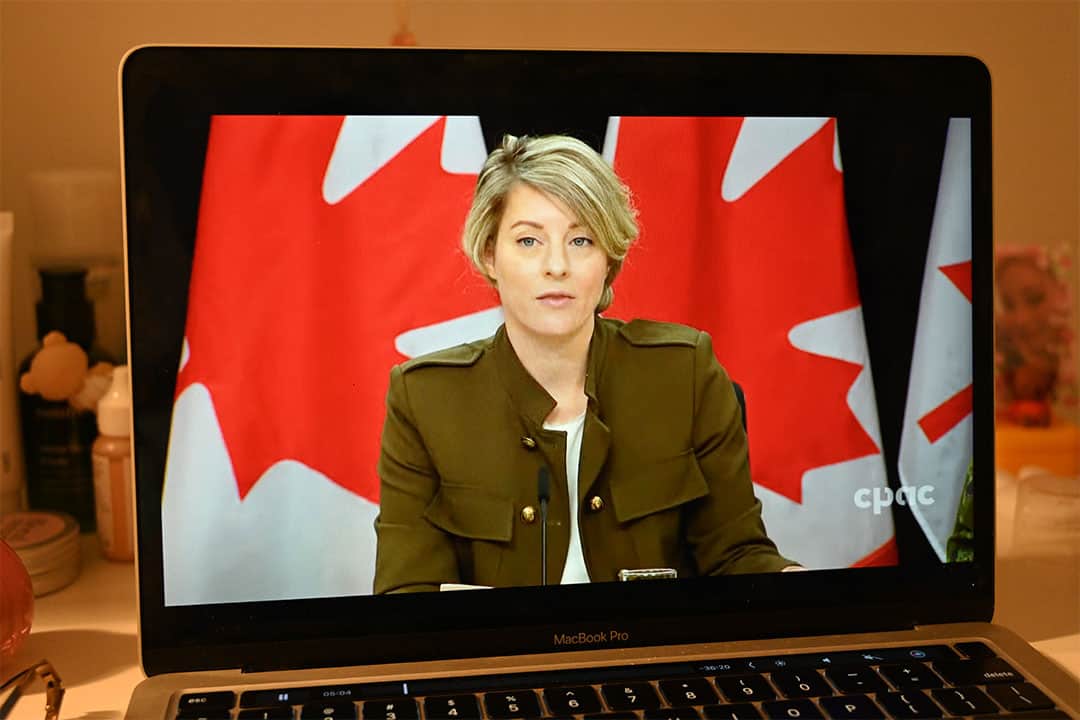On October 30, Foreign Affairs Minister Mélanie Joly delivered a speech at an event hosted by the Economic Club of Canada on “Canadian diplomacy amidst geopolitical uncertainty.” Joly addressed Canada’s role in the ongoing violence in Israel and Gaza, calling for a humanitarian truce and the release of all hostages. While Canada now expresses support for a ceasefire, this support came only a few days after it abstained from a United Nations (UN) resolution calling for one.
Despite public support for the relief in Gaza, Canada refused to vote in favour of a motion advocating for the protection of civilians. Ultimately, I’m concerned that this indicates a disparity between Canada’s diplomatic values and its actions on the world stage. Joly’s address is littered with allusions to democratic cooperation while Canada did not even act when given the opportunity to endorse the “immediate, durable and sustained” truce in Gaza the UN vote proposed.
It should be noted that Canada’s abstention followed the UN’s rejection of an amendment Canada suggested, which demanded that the UN clearly condemn the Hamas attacks. For what it’s worth, there was no request for an equivalent denunciation of Israeli forces. I feel that the government’s lack of commitment to international security creates an incoherent foreign policy.
Canada’s inconsistencies in its Gaza promises
I can’t help but feel somewhat duped when the government says one thing and does another. I was struck by the total ease with which Canada’s representatives pivoted away from discussions regarding the abstention. Joly’s pro-truce speech was made not even four days after the UN General Assembly’s emergency resolution. Furthermore, she addressed the subject without any mention of the UN meeting or Canada’s involvement.
Although Joly emphasized the need for pragmatic diplomacy, our government patently declined to support the provision of humanitarian aid to Gaza. Canada was among the minority of 59 countries that did not vouch for the truce, while a total of 120 countries cast votes in support of the ceasefire.
Instead of acknowledging Canada’s failure to intervene, Joly’s address appeals to our history of global democracy and conciliatory relations. It seems that our country’s officials are more concerned with invoking national pride than holding themselves accountable.
Though it has at least not outright denied the abstention, it appears that the federal government has little interest in addressing these inconsistencies between its actions and its words. Beyond the recent ceasefire resolution, Canada’s ambassador to the UN and former Ontario premier Bob Rae has voted against motions to recognize Israel’s violation of the UN charter. Canada has voted against draft resolutions to condemn Israeli settlement activities as well as those championing restitution toward the Palestinian people.
Deaths increase as Canada remains inactive
Unfortunately, this specific inconsistency highlights how Canada’s approach to the violence in Israel and Gaza has been unclear. On October 24, Prime Minister Justin Trudeau had expressed public support for a humanitarian truce. Shortly after that, on October 27, Canada refrained from voting for a ceasefire. On October 30, Joly advocated for a truce and cited Canada’s cultural legacy as a “credible partner” in engaging countries with peace and stability.
By October 31, the Gaza death toll had exceeded 8,000. As of November 25, this number has grown to over 14,800. This is all to say that the urgency of the situation in the Middle East can’t be overstated. Canada’s indecision and general meandering come at the cost of life, as death and displacement rise across Gaza. According to the Government of Canada, the country is dedicated to modelling Canadian principles on an international scale. Which values do we purport to embody when we fail to mitigate the erosion of an entire people?
Upon reviewing Canada’s commitments to the UN, I see that “upholding the rule of law” and “advancing peace and security” are among our primary goals. I’m skeptical whether we fulfilled either of these objectives when we chose not to condemn illegal settlements. At one point or another, I believe the federal government will have to reckon with the implications of its inaction: in addition to undermining its position on the Middle East, Canada risks damaging its credibility as an international actor. Going forward, I believe our country must assume a decisive stance on time-sensitive conflicts sooner rather than later.
Emma Dobrovnik is a third-year student at St. Michael’s College studying political science and criminology. She is a Director of Mentorship for the Association of Political Science Students and an International Affairs columnist for The Varsity’s Comment section.



No comments to display.